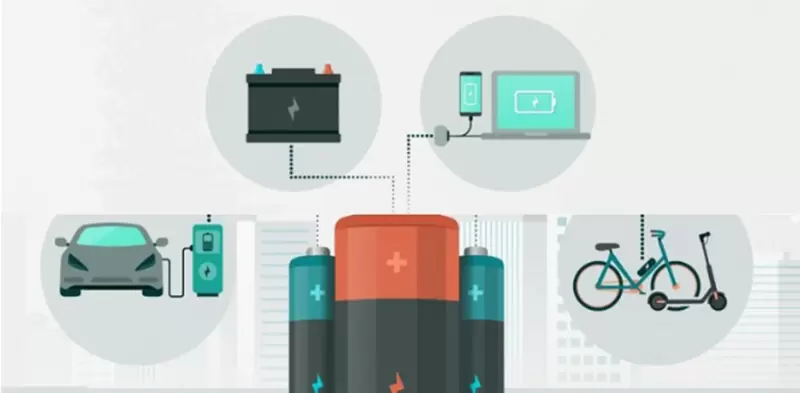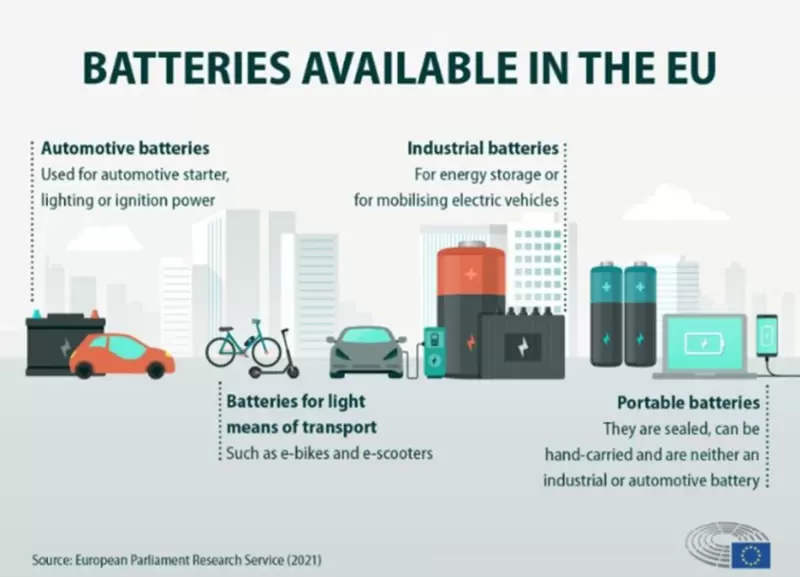New EU regulations: all batteries must be removable from 2027
The European Union has implemented a new regulation requiring all batteries to be detachable starting in 2027.
Source: Bureau of International Trade, Ministry of Economic Affairs
2023-07-13 Economic Section of the Taipei Economic and Cultural Office in Spain
On July 11, 2023, the Spanish newspaper El País reported that the European Parliament (Parlamento Europeo) reached a provisional political agreement in December 2022 to establish new standards for the design, production, and waste management of all types of batteries sold within the European Union.
In support of the aforementioned agreement, the Council of the European Union (Consejo Europeo) adopted a new regulation on July 10, 2023, requiring the batteries in electronic devices such as mobile phones to be easily detachable and replaceable by users starting in 2027. This new law will be signed by the European Parliament and will enter into force 20 days after its publication.
With an estimated tenfold increase in battery demand by 2030, it is crucial to address the design, production, waste management (tratamiento de los residuos), and lifecycle of battery products through new regulations to establish a circular economy (economía circular) for the battery industry. These new regulations will apply not only to smartphone batteries but also to batteries used in industrial electric appliances, transportation vehicles, and machinery (Starting-Lighting-Ignition, SLI), such as electric cars, electric bicycles, and electric scooters.

圖片來自:https://www.pcmarket.com.hk/
Furthermore, the aforementioned regulations require manufacturers to label their products with information regarding battery components (componentes de la batería), recycled content (contenido reciclado), electronic product passports (pasaporte electrónico), and QR codes. Labeling will be phased in starting in 2026, while QR code implementation will be required by 2027.
To promote a circular economy and maximize battery efficiency, the recycling targets are as follows: Portable batteries: 63% by the end of 2027 and 73% by 2030. Light vehicle batteries: 51% by 2028 and 61% by 2031. Lithium (litio) recovery from discarded batteries: 50% by the end of 2027 and 80% by 2031. Electric vehicle battery recycling targets: 16% for cobalt (cobalto), 85% for lead (plomo), 6% for lithium (litio), and 6% for nickel (níquel).
Teresa Rivera, Spain's Third Deputy Prime Minister and Minister for Ecological Transition and Demographic Challenge, has stated that batteries are a crucial component in the decarbonization process (proceso de descarbonización) and the EU's path towards zero emissions (cero emisiones). To bolster European industrial competitiveness, ensure the success of the green transition, and avoid dependence on third-party countries for raw materials, it is essential to recover and reuse critical raw materials (materias primas críticas) through battery recycling.
The EU's four visions for batteries: environmental sustainability, waste treatment, circular economy and specific implementation suggestions

圖片來自:https://www.pcmarket.com.hk/